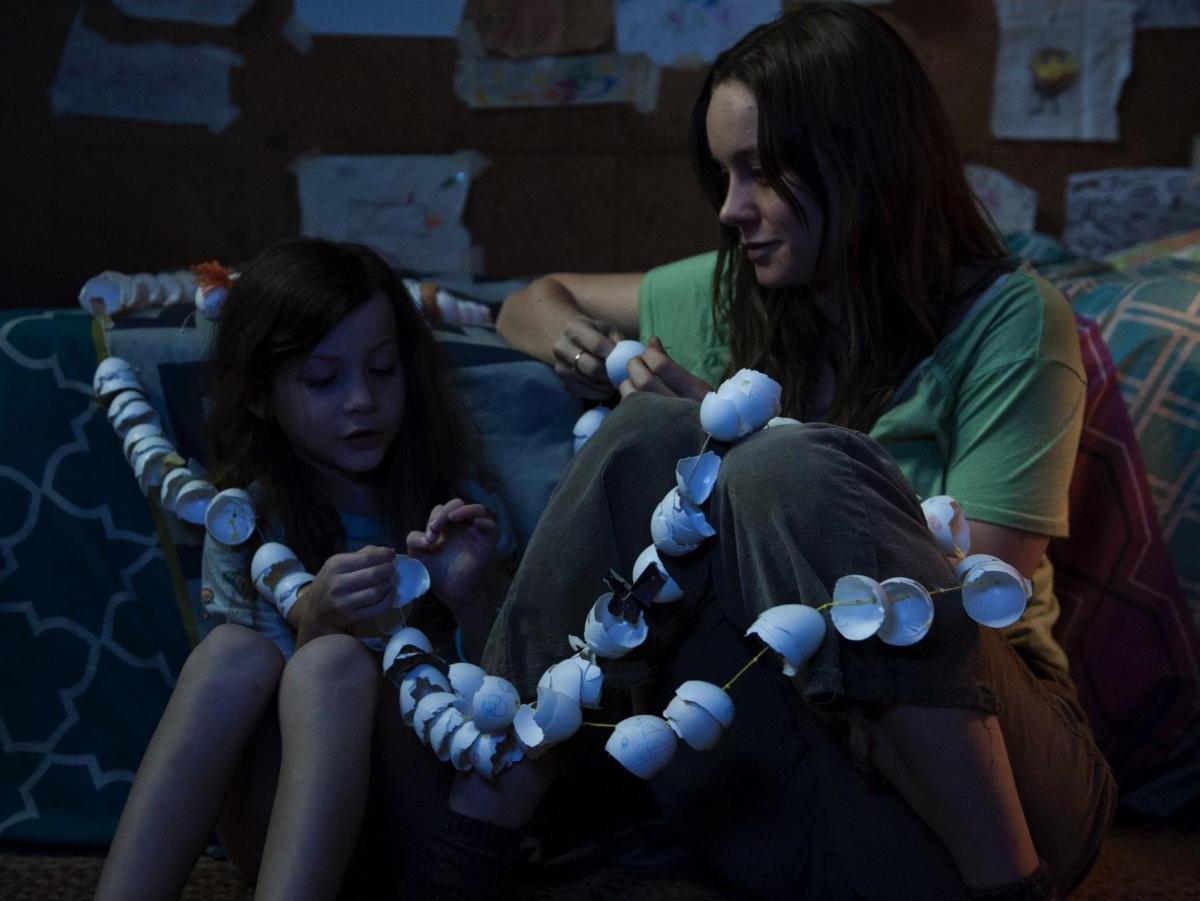The first frames of Room endeavour to turn the constricted into the extensive. Close-ups of everyday items fill the screen, all ordinary in their appearance but extraordinary in their location, and further heightened by the esteem in which five-year-old Jack (Jacob Tremblay, The Smurfs 2) holds them. Wandering around a confined space revealed to be small, all-purpose living quarters, the child greets each object like a friend, with the camera adopting his warm, loving gaze. Jack’s view is one of affection and familiarity, spying more than just a plant, chair and other routine household items in a restricted place; he sees life as he knows it.
That act of expansion — focusing on the narrow but seeing the far-reaching — recurs throughout the Lenny Abrahamson (Frank)-helmed, Emma Donoghue-scripted adaptation of the latter’s best-selling book of the same name. A cramped room becomes so much more when perceived through the eyes of a child who has never ventured beyond its walls, and when the door to the shed-turned-prison Jack lives in with his Ma, Joy (Brie Larson, Trainwreck), finally opens, it unlocks what may as well be another world. Kidnapping and confinement is the reality of their story, with the pair at the mercy of a man known only as Old Nick (Sean Bridgers, TV’s Rectify). Since Joy was 17, she has been held against her will in the titular locale. Jack joined her two years into her now seven-year abduction.
In such circumstances, conceived by Donoghue after hearing about the infamous Josef Fritzl case, the idea of widening the limited scope of the characters — first, in how they witness and interact with their surroundings; eventually, in an act of physically fleeing — is clearly apt. Beyond aesthetic choices and plot points, however, the central plight of the mother-and-son captives is laden with not only their own suffering, but with the relatable struggle of trying to overcome the past and forge a path forward. With that in mind, every aspect of Room is designed to transform the insular into the vast and the specific into the universal. While it may be effective in eliciting an emotional response, the feature never quite escapes the blatancy and literalness of its efforts to create the desired outcome.
That includes the preferred low placement of cinematographer Danny Cohen’s (The Danish Girl) lens, aping Jack’s vantage. It also extends to the method in which editor Nathan Nugent (What Richard Did) weaves the movie together, similarly endeavouring to conjure a child’s experience. Though anchored in the narrative and in the novel, the film’s reliance upon both leaves the techniques feeling like gimmickry, employed to enhance sentiment and subjectivity rather than the storytelling process. Room may earn the strong reaction it seeks in its details alone, but the way the feature conveys its contents proves heavy-handed, blunting the sensitivity and intimacy of the material, and remaining happy to simply show rather than thoughtfully ponder the ordeal at its centre.
Accordingly, actors Tremblay and Larson are forced to confront a similar scenario to their characters, their performances breaking free of stylistic constraints, as well as carrying a considerable weight — that of encapsulating the movie’s many transitions from the slight to the broad in a more effective manner than its technical choices — on their shoulders. As they tread narrative beats of terror and trouble in following Jack and Ma’s attempts to cope with their internment, then escape, then adjust to normality, both ably carry the burden. If anything helps Room shake off its air of teary calculation and approach authenticity, it’s Tremblay’s wide-eyed but never overdone balance of delicacy, resilience and wonder, plus Larson’s lived-in evocation of the kind of pain no one can hide from, even a parent so desperately trying to for the sake of their offspring. Teeming with camaraderie, combined they provide the tender and subtle microcosm of hope against the odds that Abrahamson is so intent on creating in his otherwise involving, affecting but overt effort.
Rating: 3 stars out of 5
Room
Director: Lenny Abrahamson
Ireland | Canada, 2015, 118 mins
Release date: January 28
Distributor: Roadshow
Rated: M
Actors:
Director:
Format:
Country:
Release:





